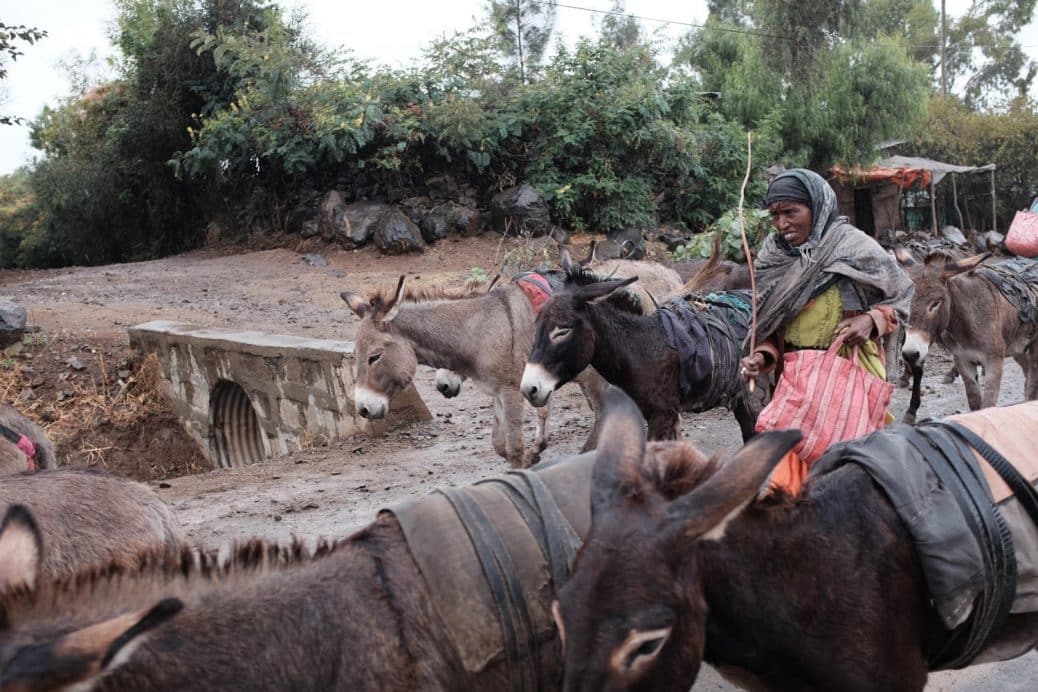(Photo: Emily McIntyre.)
Since November 2016, Emily McIntyre has been living in Ethiopia with her husband and five-year-old daughter, Eire. As part of their work with Catalyst Coffee Consulting, the McIntyres have been traveling around the country to partner with producers, mills, and processing/export professionals. Their efforts are focused on education, deepening relationships, and moving toward truly progressive Ethiopian coffee. Read here first post here.
[I] wrote last week about a glorious night I spent dancing under the bright stars in Harar, Ethiopia, with Abebeyahu of the Tiret Cooperative (TCPCA) and the fathers, brothers, cousins, friends, and neighbors he has coalesced into a new group of passionate coffee folks who can deal directly with foreign buyers through our help. It was a glamorous moment to me as a coffee professional, the ultimate image of what it means to do “direct trade.” The smoke in my nose from the fire,, the callused hands holding mine, the thrumming a cappella music, the exhilaration of very hard work, done well . . . I’ll never forget it.
Today, though, I want to talk a bit about the steps it’s taken to get to this point, because moments like this are few, and must be earned—at least if we’re going to do this specialty coffee thing justly, and honestly, and with respect to our fellow man.
There are the twelve-hour days Michael and I—my husband and business partner—spent cupping up to eighty samples a week in our basement lab in Portland, Oregon, for months at a time.
There are the cold calls to roasters, the endless prep for cupping events, the packing and mailing of samples that often ended up in somebody’s rubbish bin.
There are the hard calls; when a coffee farmer’s lot drops four points between processing and US arrival, something’s wrong with what he’s doing, and he needs to know. Plus, there’s the costly per-pound quality-based premiums to talk about. The responsibility is on both ends.
There are the endless hours of work put in by farmers who could be growing khat instead—a popular herbal stimulant in East Africa consumed similarly to chewing tobacco—and earning 30 percent more per kilo, and the endless hours of work by Dominion Trading employee Zelalem Girma to get the export paperwork in order.
There is jet lag, and a hysterical four-year-old, and walking down a mountain on a barely-healed torn ankle ligament. There are stirrups that don’t match, and endless hands that want to touch our strange white skin.
There is hope, and fear, and disappointment, and despair.
There is courage, and fellowship, and lots and lots of tiret, or “best effort.”
Tiret. This is what it takes to dance under the stars with coffee farmers in the ultimate Instagrammable moment. And in the sanctity of my own intentions, this is just the beginning of the hard work for the global coffee value chain and, hopefully, for those brief moments of glamor.
—Emily McIntyre is a regular contributor to Fresh Cup, and the co-founder of Catalyst Coffee Consulting and Crema.co.















